Summer is now in full swing and, as the excitement of a new season fades, it can be easy to fall into a late-summer funk. Summertime can be difficult. It is hot, which makes it difficult to get out sometimes, and those in school are separated from their friends. Consequently, many young people can experience isolation during this time. Isolation can show up in a number of different ways. It might look like a lack of physical contact or communication, but it can also occur for folks who have marginalized identities. Those with identities and experiences that exist on the fringes of what is socially “acceptable” might experience isolation due to lack of resources, judgment, shame, and discrimination.
If you’re feeling isolated (lonely, bored, frustrated) that is okay and totally normal.
Folks who are lonely or feel isolated can experience depression, anxiety, fatigue, insomnia, low self-esteem, poor memory, and ‘mental fog’. People from LGBTQ, immigrant, and BIPOC communities tend to be at a higher risk for social isolation, and more likely to experience the negative outcomes.
Sometimes, it can be difficult to remember that you are not alone. If you are feeling isolated, NRS would love to help you in any way that we can.
Here are some tips to try to break cycles of loneliness:
- Meet up with a friend or mentor: If you are unable to be with a friend in person, because of distance or some other reason, you can try calling them via a video chatting app or service.
- Get outside for a walk: Walk to the grocery store, or just around your block. Try talking to or giving a compliment to a new person or acquaintance. Even a surface level interaction can help you feel more connected.
- Connect with someone on social media: It is possible to develop real, health, and positive relationships on the internet. But, remember to be extremely careful about giving any personal information or commitment to an online stranger you have never met in real life.
- Reach out to a therapist or community organization: Therapy might seem like a luxury, but there are creative ways to experience the therapeutic benefits of connection and relationship building.
- Give us a call at 1-800-RUNAWY (786-2929) or chat us here! We’re available 24/7 to help you with whatever you need… even if its just to talk
- The National Alliance on Mental Illness (NAMI) HelpLine may be able to help you develop concrete next steps to help support your mental health.
- The Trevor Project’s TrevorSpace provides a safe, affirming virtual space for LGBTQ+ youth – find your community online!
- If you don’t have regular access to the internet, consider visiting your local library. Many have public computers available to use! Libraries also offer community events where you might be able to meet a new friend.
There are options to help you break the effects of isolation. At NRS, we do our best to support our callers by meeting them where they are at and offering a non-judgmental space for folks to talk. You are not alone, and it may take just a little creativity to remember it.




